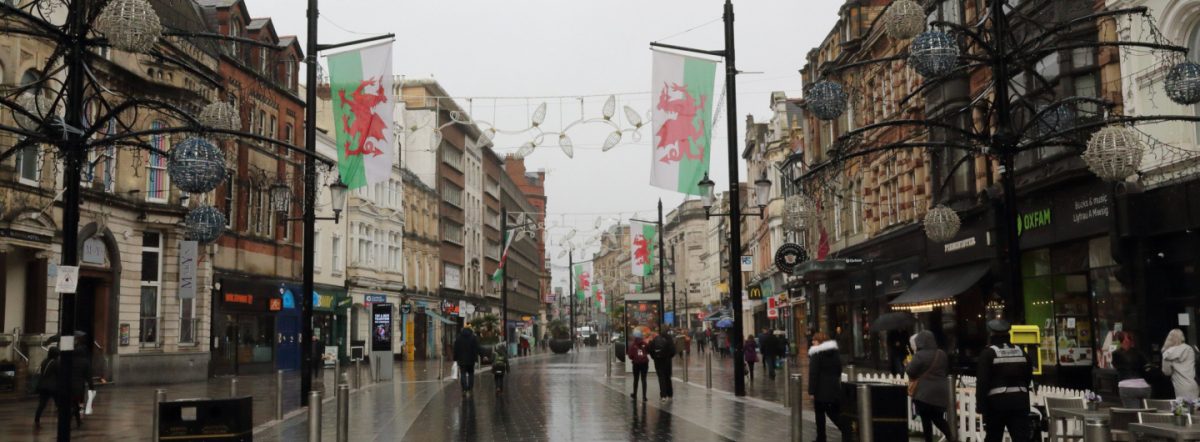A third of the UK population (29%, 15.4m people) experiences mould in their homes frequently or occasionally as Britain’s energy crisis bites hard.
The new data is based on research for the Warm This Winter campaign and reveals that 10% (5.3m people) experience mouldy living conditions frequently.
Among the major cities, the data shows a clear geographic split in an unwelcome league table of mouldy properties. Cities in the west of the UK were found to be significantly more likely to experience dangerous living conditions.
- Cardiff – 42% frequently or occasionally experience mould (19% frequently)
- Plymouth – 36% (14%)
- Manchester – 35% (16%)
- London – 32% (10%)
- Leeds – 31% (10%)
- Bristol – 31% (4%)
- Sheffield – 30% (11%)
- Glasgow – 29% (14%)
- Liverpool – 29% (13%)
- Birmingham – 29% (8%)
- Belfast – 26% (10%)
- Southampton – 24% (10%)
- Newcastle – 23% (6%)
- Brighton – 22% (14%)
- Nottingham – 22% (6%)
- Edinburgh – 18% (2%)
- Norwich – 12% (2%)
Even in areas where mould is less common it can still result in tragedy. Recently a coroner reported that a 52 year-old tenant of one East Midlands council died of lung disease made worse by living in mouldy conditions and an estate in Edinburgh has been described by one resident with lung conditions as “riddled with damp and mould“.
Not only does damp and mould produce mould spores and other toxins that are harmful to health, but even excessive moisture can lead to the growth of mould and other fungi, certain species of house dust mites, bacteria or viruses.
The tragic case of Awaab Ishak highlighted the need to take the issue of mould in UK homes seriously and the NHS advises all young children to be kept away from damp and mould. But the figures show 3.4m people who have frequent or occasional exposure to mould and who have a child under 6 or who are pregnant.
Becca Lyon, head of child poverty for Save the Children UK, said:
“Children should not grow up in homes with mould that risks their health. We know budgets are so tight that housing is becoming ever more difficult to afford and that 140,000 children in the UK are in temporary accommodation.
“This story should make the UK government take notice, and endeavour to do more for families. Reform to the Local Housing Allowance was a good start but measures like scrapping the unfair two-child limit to benefits would put more money in families’ pockets to help them heat their homes.”
The Government warns that the “more serious the damp and mould problem and the longer it is left untreated, the worse the health impacts and risks are likely to be.” The solutions to mouldy damp homes are insulation and better energy efficiency of buildings as well as access to cheaper renewable energy.
A spokesperson for the End Fuel Poverty Coalition, commented:
“We urgently need an Emergency Energy Tariff for vulnerable households and a Help To Repay scheme for those in energy debt to help people ensure their homes are free from mould.
“Vulnerable households, including young families and expectant mothers, are struggling because of Ministers’ failure to provide emergency financial assistance this winter and longer term failures to invest in the permanent solutions to fuel poverty, such as insulation and reform of energy pricing.”
Chia Harrington from Fuel Poverty Action commented:
“In Glasgow, mould is a real problem and it can contribute to lower life expectancy in the city.
“We have seen cases where the mould problem is so bad that the health of occupants had totally deteriorated, with people developing severe breathing problems and – in one case – a resident even had to have teeth removed because the toxins from the mould had affected his health so badly.
“It’s wrong that housing associations and landlords can get away with their tenants living in conditions that are so bad, but this is also connected to the wider issues within our energy system that mean people can’t afford the energy to prevent damp accumulating.
“Our energy system and housing system needs urgent reform so that people are not made ill by their homes.”
Fiona Waters, spokesperson for the Warm This Winter, commented:
“Families are feeling the squeeze from every direction with the lowest living standards since records began and the poorest and most vulnerable in society bearing the brunt of sky high energy bills which will be increasing again in January.”
John McGowan, General Secretary of the Social Workers Union, added:
“Across the country social workers report seeing families struggling in living conditions that are more like Victorian novels than modern day Britain. It’s clear that households – especially those most at risk from the health complications of living in cold damp homes – need more support.”
ENDS
Methodology note: Opinium conducted a nationally representative survey among 2,000 UK Adults from the 24th – 28th November 2023. Results were weighted to be nationally representative. Population estimates based on ONS projections of adults aged 18+ for mid-2021 (the latest figures available), i.e. UK 18+ population 53,188,204.

